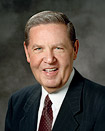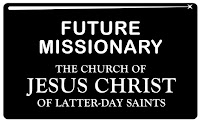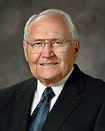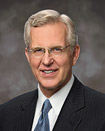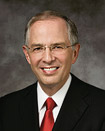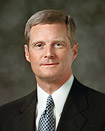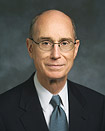I want to say that I randomly started thinking about randomness, but I'm pretty sure there was a trigger. (So it couldn't have been random.)
I probably heard someone say, "Here's a totally random question..." and then ask a question that entirely related to what was being discussed.
But I probably don't understand what others mean by random.
In a post long ago (link), I wrote about taking classes in probability and statistics in musings on randomness. Here's a repeated quote from one of my professors:
So what is random?
Is there beauty in randomness?
I wanted to create a bit of analytical random art to answer the second question. Here's what I came up with:

Do you see any beauty here? (I do!)
Here's a brief explanation: I distributed 400 points (20 high, 20 across) on x and y axes and let the size of the points vary randomly across ten values (between zero and nine) using Excel's Random function.
You may say, "Sure, it's beautiful, but it's hardly random!"
I agree! Note that I placed randomly sized points (of only ten different values) in ordered spaces. Of possibly three variables, only one is slightly random.
If you feel cheated, imagine how dirty I feel having tried to pull such a sneaky trick!
Here's another interpretation of randomness with the same question as before; is there beauty in randomness?

Do you see any beauty here? (I do, again!)
Explanation: This time, the 400 points' x and y values can be anywhere between 0 and 20, and the size of the points still varies randomly, but any value is allowed.
So, which version of "random" is more beautiful to you? -OR- Which would you rather hang on your wall?

And don't just "randomly" choose one!
I probably heard someone say, "Here's a totally random question..." and then ask a question that entirely related to what was being discussed.
But I probably don't understand what others mean by random.
In a post long ago (link), I wrote about taking classes in probability and statistics in musings on randomness. Here's a repeated quote from one of my professors:
There is no 'random.' What we perceive as randomness is the result of our inability to understand what is going on. We simply don't have a good enough model yet to understand the event in question.
So what is random?
Is there beauty in randomness?
I wanted to create a bit of analytical random art to answer the second question. Here's what I came up with:

Do you see any beauty here? (I do!)
Here's a brief explanation: I distributed 400 points (20 high, 20 across) on x and y axes and let the size of the points vary randomly across ten values (between zero and nine) using Excel's Random function.
You may say, "Sure, it's beautiful, but it's hardly random!"
I agree! Note that I placed randomly sized points (of only ten different values) in ordered spaces. Of possibly three variables, only one is slightly random.
If you feel cheated, imagine how dirty I feel having tried to pull such a sneaky trick!
Here's another interpretation of randomness with the same question as before; is there beauty in randomness?

Do you see any beauty here? (I do, again!)
Explanation: This time, the 400 points' x and y values can be anywhere between 0 and 20, and the size of the points still varies randomly, but any value is allowed.
So, which version of "random" is more beautiful to you? -OR- Which would you rather hang on your wall?

And don't just "randomly" choose one!




